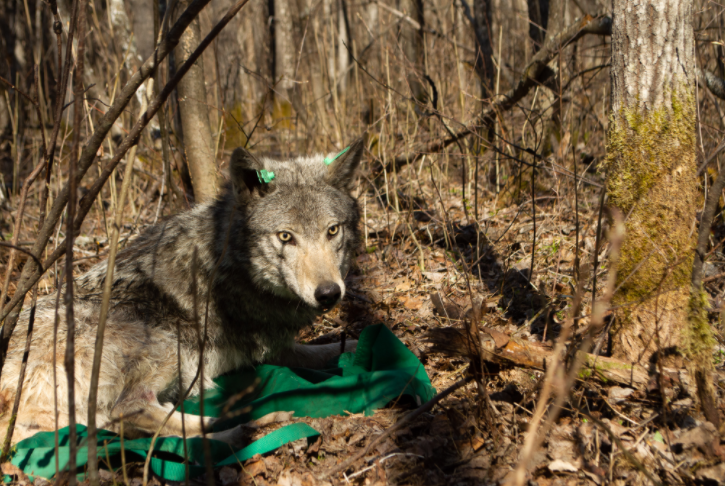THUNDER BAY — A solitary wolf that was part of a research project based in Minnesota has been found dead northwest of Thunder Bay, with a snare around its neck.
The 3-to-4-year old female had been collared by a study team for the Voyageurs Wolf Project last May, then tracked by GPS after she was set free just south of Rainy Lake.
Dubbed VO91, the wolf immediately headed north across the international border, then travelled east to the Shabaqua and Kaministiquia area where she spent most of the summer.
In late August she resumed wandering to the north and northeast, eventually getting as far as Lake Nipigon.
However, she then took a wide circle back to her point of origin, and settled down again last month in an area roughly between Shabaqua and Raith.
Last week, the wolf's radio collar sent out a mortality signal, meaning the collar was no longer moving and she was possibly dead.
In a social media post, the study team described her movements over the previous two weeks as odd, saying she had been spending a lot of time around a beaver pond and "wasn't moving much."
"We figured she had either made a large kill like a moose, or something was going on," the post added.
After the mortality signal came in, the U.S. team enlisted the aid of Canadian supporters of the project to find out for certain.
Last Friday, they located VO91's body with a snare around her neck.
In a post Monday, Voyageurs Wolf Project said the wolf had "pulled the snare out of the ground where it was anchored, meaning she was moving around with the snare on her neck for some time."
The study team suspects that "based on her GPS locations and movement patterns, VO91 was initially caught in the snare in mid-to-late September. It appears she then eventually died 10 days to two weeks after this on Oct. 4."
Monday's post acknowledged that VO91's death will be upsetting to people who have been following the progress of the Voyageurs Wolf Project, which frequently releases video of wolves captured on cameras it maintains in its northern Minnesota study area.
"Our goal through our social media has been to share objective insight into the wolves we study and what their lives entail whether that be pleasant, unpleasant or in between," the post said.
It added "VO91's travels captured the fascination of many, and when we first shared her journey, we had no idea how her story would unfold. Ultimately, though, her end (i.e. human-caused mortality) is not dissimilar from the end of many wolves that live in areas where people are present."
VO91 was one of 20 wolves currently being tracked with GPS by the Voyageurs Wolf Project.
The project is a collaboration between the University of Minnesota and Voyageurs National Park, with funding assistance from the Minnesota Environment and Natural Resources Trust Fund.
